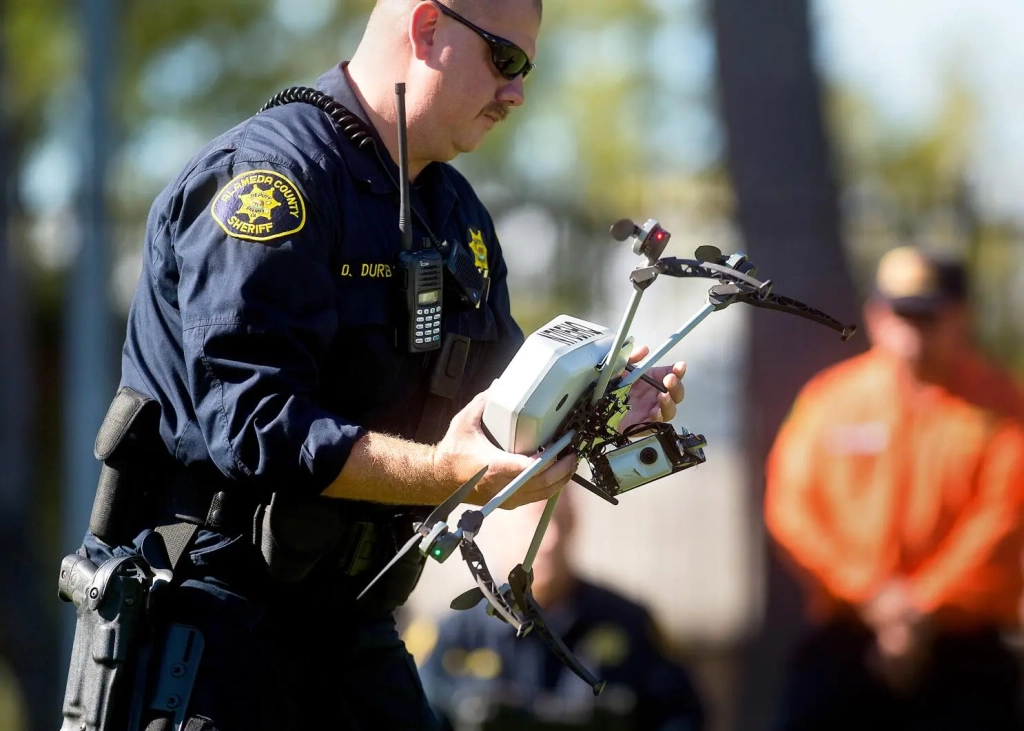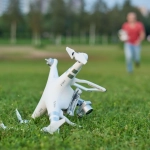Can you fly drones in New York City? Do you need any special permissions for this? Get the answer from this post
Ah, the majestic skyline of New York City – a concrete jungle where dreams are made of, and apparently, where drones dream of taking flight. But hold on to your propellers, my drone-loving friends, because navigating the airspace over the Big Apple is no walk in Central Park.
So, Can You Fly Drones in New York City?
The burning question on every drone enthusiast’s mind: Can you fly drones in New York City? Well, my fellow drone aficionados, the answer is a bit like finding a needle in a haystack – not impossible, but certainly not a piece of cake. 🍰
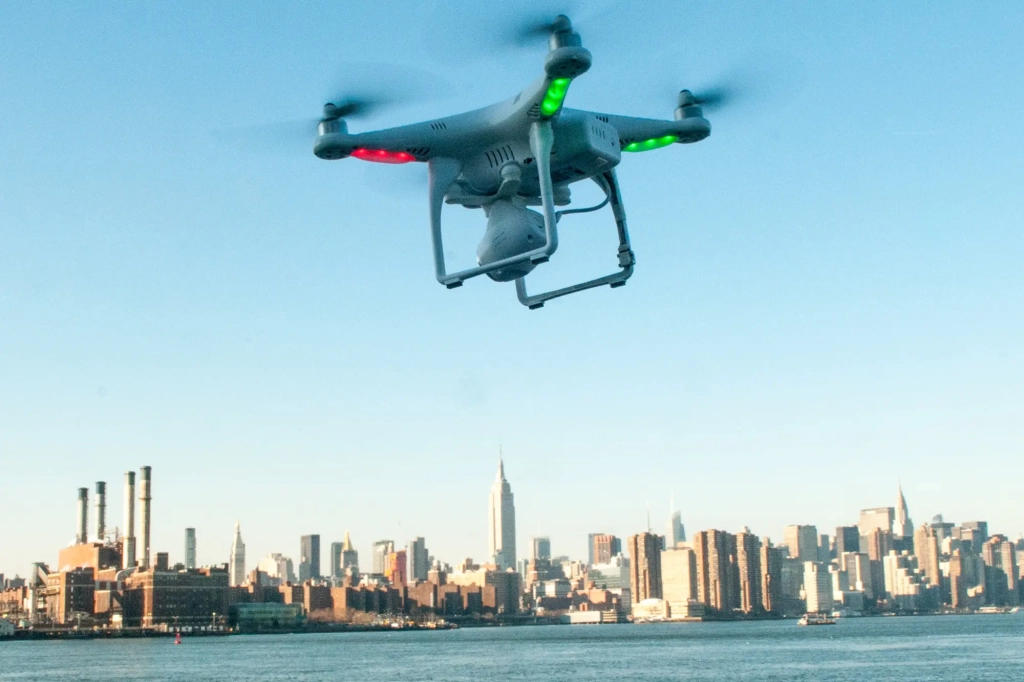
Navigating the Regulatory Skies
In the world of drone-flying, rules are as ubiquitous as yellow cabs in Times Square. The Federal Aviation Administration (FAA) sets the stage, but local authorities also have a say. In NYC, the Department of Transportation and the NYPD add their own twists to the drone-dance. 🚁
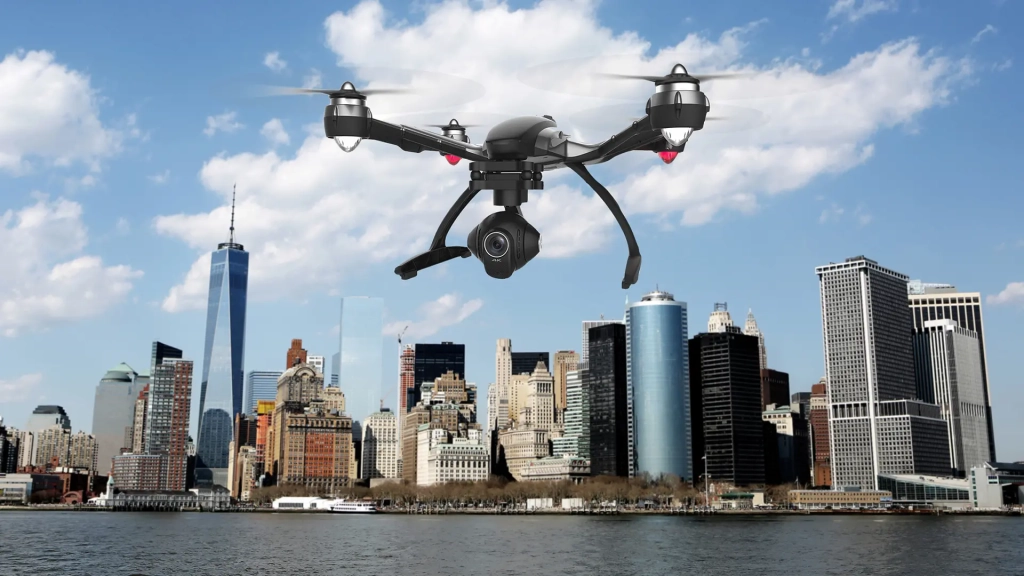
FAA: The Overarching Maestro
The FAA, like the Broadway maestro orchestrating a complex symphony, sets the guidelines for drone flights across the nation. 🎵 According to the FAA, you can’t just send your drone soaring like Spider-Man swinging from skyscraper to skyscraper.
- No-Fly Zones: The FAA designates certain areas as no-fly zones. Forget about capturing cinematic shots of Lady Liberty or the Empire State Building from above. These landmarks are a drone no-fly zone! 🗽
- Height Restrictions: Just like a skyscraper has its limits, so does your drone. The FAA restricts flying above 400 feet. 🏙️
- Registering Your Drone: It’s like getting your Broadway ticket – your drone needs to be registered with the FAA. You wouldn’t sneak into Hamilton, would you?
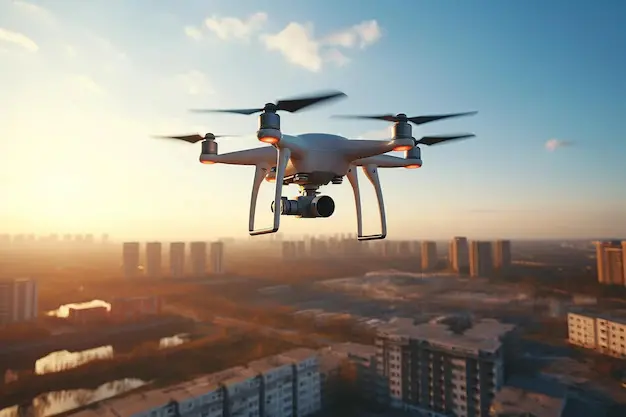
New York City’s Local Flavor: The Additional Spice
Now, let’s talk about the local nuances that make flying drones in NYC as intricate as ordering a bagel with the right schmear.
The NYPD – New York’s Drone Squad? 🚔
The New York Police Department has its own drone unit, which adds a layer of complexity to the already crowded airspace. They’re not exactly welcoming your DJI Phantom with open arms. If your drone decides to join the NYC skyline uninvited, be prepared for a close encounter with New York’s finest. 👮
Parks, Buildings, and the Not-So-Friendly Skies
NYC parks, like Central Park, are off-limits to drones. The city’s iconic skyscrapers may give you vertigo, but flying a drone near them might give you a visit from law enforcement. 🏞️
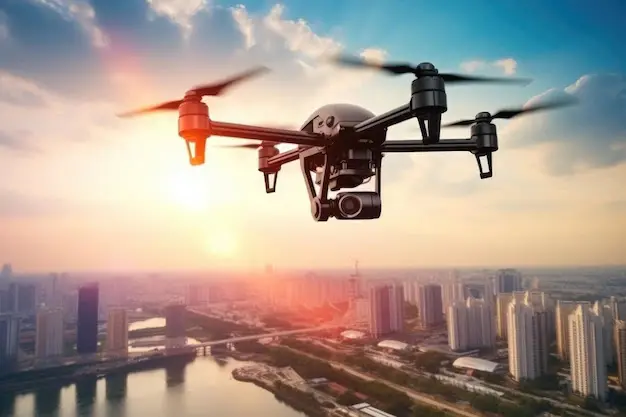
Summing It Up: Can You Fly Drones in New York City?
In a city where even pigeons might need air traffic control, navigating the skies with your drone requires finesse. So, can you fly drones in New York City? Yes, but it’s like playing chess in Washington Square Park – you need to know the rules and be strategic.
Read More: How Far Can a Drone Fly?
Important Tips for the NYC Drone Explorer 🌐
- Research, Research, Research: Know the FAA rules and NYC regulations like the lyrics of your favorite Broadway tune.
- Check for No-Fly Zones: Don’t let your drone unwittingly crash an exclusive party in a restricted area.
- Be Mindful of Local Authorities: The NYPD might not appreciate your drone photo bombing their precinct.
- Join Drone Enthusiast Groups: Connect with local drone pilots who’ve braved the NYC airspace and lived to tell the tale.
- Don’t Ask This: Don’t Ask this dumb question “Can You Fly Drones in New York City” to any people because it has become a common sense!
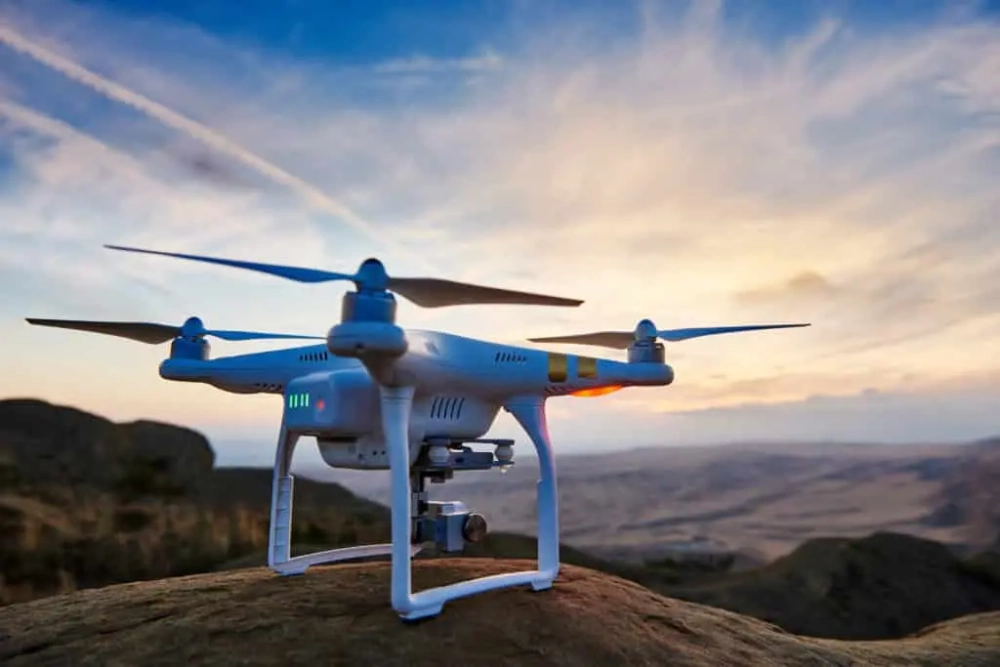
Conclusion: Flying High or Grounded? 🚀
So, dear drone pilots who used to ask questions like “Can You Fly Drones in New York City?“, the skies above New York City are not an open canvas; they’re more like a controlled gallery. While the allure of capturing the city that never sleeps from above is strong, make sure your drone knows the steps to this intricate dance in the urban skies. And always remember, even in the drone world, not all who wander are lost – some are just trying to figure out if they can fly in NYC! ✈️
Timmy and the Drone Query: Can You Fly Drones in New York City?
Once upon a time, in the bustling streets of New York City, there was a curious boy named Tommy Shelby. Tommy had a peculiar habit of asking everyone he met the same question: “Can you fly drones in New York City?” He asked it so often that it became a sort of chant for him.
One sunny afternoon, Tommy spotted a stranger with a camera and, without missing a beat, he blurted out, “Can you fly drones in New York City?” The stranger chuckled and replied, “Well, it’s complicated, you see…” But before he could finish, Tommy had already run off to ask someone else.
Tommy’s quest led him to a hot dog vendor, a Broadway actress, and even a group of tourists, all of whom were greeted with the same question: “Can you fly drones in New York City?” Each person gave Tommy a different answer, ranging from “I have no idea” to “Isn’t that illegal here?”
As the day turned to evening, Tommy found himself at the foot of the Empire State Building, where he saw a man with a remote control in his hands. With wide eyes, Tommy approached him and asked, “Can you fly drones in New York City?” The man smiled and said, “I’m actually controlling the building’s lights, not a drone. But to answer your question, flying drones in New York City is heavily regulated due to safety and privacy concerns.”
Tommy, finally satisfied with an answer, thanked the man and decided it was time to go home. On his way, he couldn’t help but wonder why he had been so fixated on that question. It dawned on him that perhaps he should have been asking something more sensible all along.
And so, the moral of the story is: Repeating the same question, like “Can you fly drones in New York City?” over and over doesn’t necessarily make one wise. Sometimes, common sense is just about asking the right questions at the right time.
In the end, Timmy realized that constantly asking, “Can You Fly Drones in New York City?” might make people question his common sense. While curiosity is a wonderful trait, it’s essential to balance it with an understanding of when to stop and reflect on the answers already given. Not everyone may respond kindly to repeated questions, and some may even use it as an opportunity to poke fun. So, for the sake of fostering genuine curiosity and maintaining respect in conversations, it’s crucial to remember the importance of common sense.

